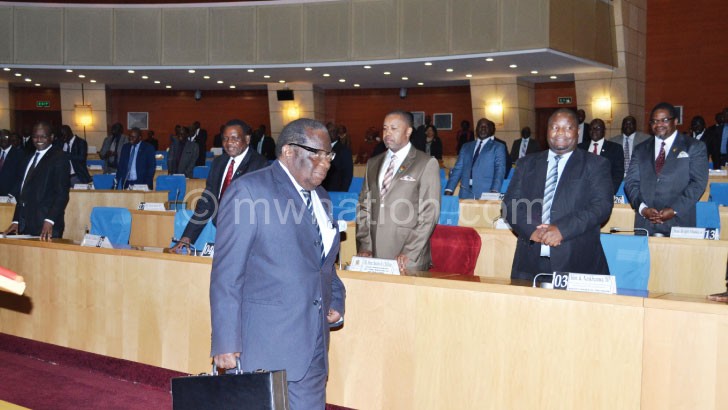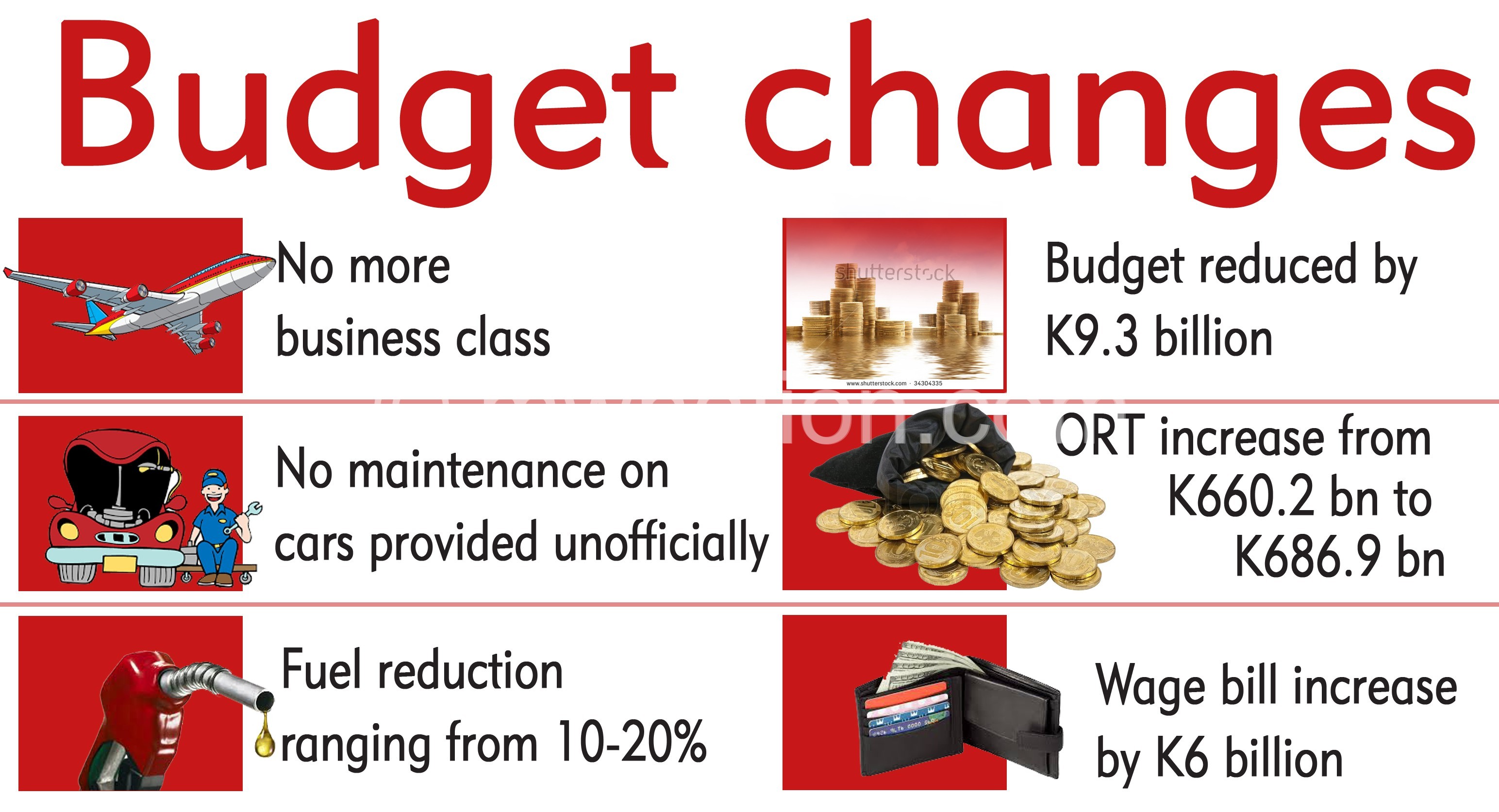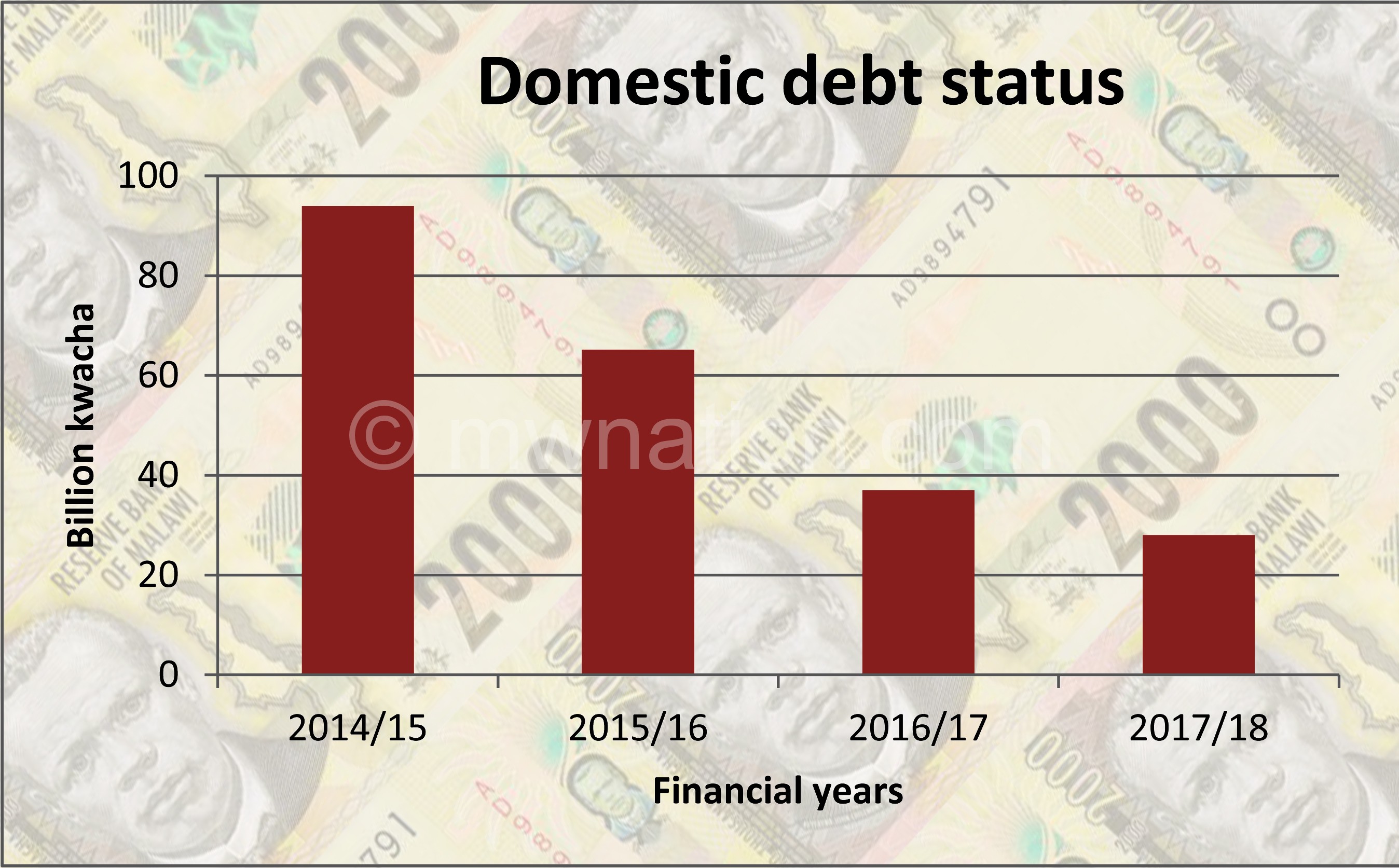Goodall counts on world bank
- We can’t just rely on World Bank—Chiphiko
- There is hope donors will come in—Tett
After promising to cut the budget by K30 billion, the country’s purse-keeper Goodall Gondwe yesterday backtracked to cut the strained fiscal plan by a meagre K9.3 billion.

Gondwe, however, is banking on a K60 billion budgetary support from the World Bank to rescue the 2017/18 budget from disaster following a K45 billion bailout to State produce trader Agricultural Development and Marketing Corporation (Admarc) and a K46 billion shortfall in domestic revenue collection piling pressure on the budget.
Presenting the Mid-Year Budget Statement to Parliament in Lilongwe yesterday, Gondwe also disclosed an unbudgeted expenditure of K5 billion on wages for the Malawi Police Service (MPS) and Malawi Defence Force (MDF), which is also expected exert pressure on the budget.
The expenditure pushes the wage bill from K303.5 billion to K308.5 billion.
But Gondwe was hopeful that if the support from the World Bank materialises, the revenue and grants line of the budget could be further propped by K2.6 billion.
However, the expected lifeline from the World Bank, has not prevented a K9.3 billion revision to the budget—bringing it down to K1.313 trillion from K1.323 trillion—with revisions expected to the recurrent budget, in particular travel.
This means total revenue and grants will register a small increase of K2.6 billion from the original budgeted figure of K1.127.7 trillion. In terms of overall budget, the budget deficit has improved from K195.6 billion down to K183.6 billion.
Government expects to cut domestic borrowing, although debt will go up from K27.8 billion to K33.7 billion.
An optimistic Gondwe said with improved power supply, tax collection would be normalised and yield K70 billion more than was collected in the first-half of the year.
The K60 billion expected from the World Bank, plus hope of a better performance in revenue collection between January and June, 2018 are some of the 2017/18 budget’s saviours.
“It is believed that with a number of economic measures that will eliminate power outages, tax collection will be normalised in the second-half of 2017/18,” Gondwe said.
From a target of K451 billion for the first-half, July to December, MRA has only collected K410 billion, according to a report issued last month.
Apart from the budgetary support, the government plans to institute travel policy measures which would reduce recurrent expenditure. These include reducing fuel allowance across the board, reducing the number of personnel provided with official vehicles and stopping payments for maintenance of such vehicles.
The government also plans to limit travelling business class to a small group of public servants, among them, ministers, the Chief Secretary, Speaker and the Chief Justice.
“In general, these measures merely supplement the fact that responsible controlling officers, in response to the cuts in travel budgetary lines, will reduce the number of official missions in response to the cuts that have been made to their votes,” Gondwe said.
However, these measures are yet to take effect as the Chief Secretary and Secretary to the Treasury are working on the nitty-gritties, he said.
Apart from missed domestic revenue targets, a K55 billion budget support that Treasury expected from the European Union (EU) has not come to pass.
Gondwe said last week that the figure was put in too hastily before the government and the EU had finalised discussing the conditionalities.
The twin disasters of dry spell and fall armyworms, which have struck 18 districts and could result in the loss of 273 000 metric tonnes of maize, is an other pressure to the 2017/18 budget which Treasury has to avert through early purchases of maize.
About K34.8 billion has been set aside in the revised budget for the advance purchase of 200 000 metric tonnes of maize by Admarc and National Food Reserve Agency (NFRA) as well as logistics for moving maize to areas which will be affected by food shortages.
However, the elaborate means that Gondwe has moved around the budget to avert disaster has not impressed the Budget and Finance Committee, which believes counting on World Bank to save the budget is not the way to go.
Reacting to the budget presentation, committee chairperson Rhino Chiphiko said given the present economic condition worsened by power shortages for the better part of the first-half of the financial year, a K9.3 billion revision was mediocre.
“We should have been talking about K60 billion revision at least because as it is there is no hope the macro-economic situation will stabilise. The reserves are going down, there is little stability of the exchange rate and we will realise less from tobacco revenue,” he said.
On her part, British High Commissioner Holly Tett was hopeful that with strong reforms in agriculture and other sectors, there was hope that donors would come in.
“There are a number of triggers that need to be met before the World Bank funding will be released and some of those reforms would be similar to the ones that were made in the International Monetary Fund (IMF) recommendations following their visit recently,” she said.
Tett said there was need for strong commitment towards reforms, priority areas being on agriculture such as transparency in Admarc, fertiliser, seeds and the review of the Control of Goods Act.
However, the British envoy said her government could not make promises to help out in case of food shortages until definitive figures on food output this season are made. n





